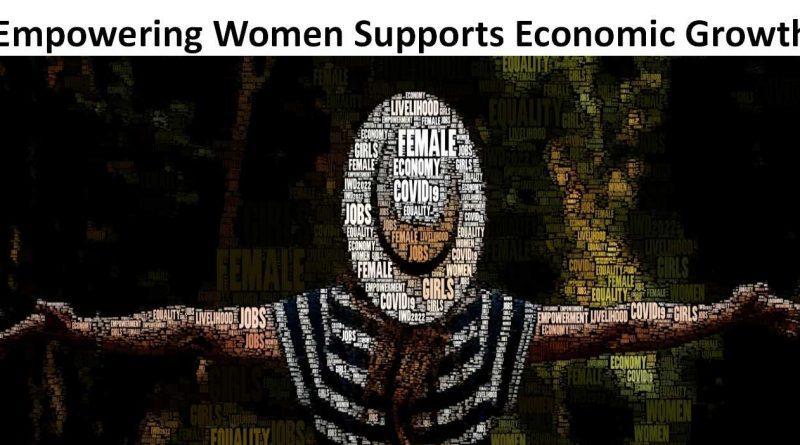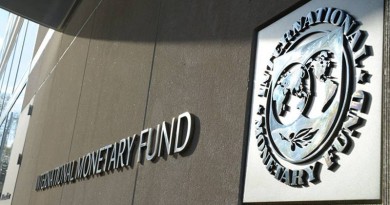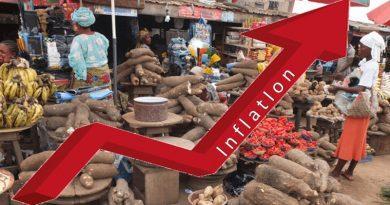How Empowering Women Supports Economic Growth: International Women’s Day 2022
International Women’s Day, first recognized by the United Nations in 1977, grew from early 1900s labor movements for better working conditions and women’s right to work. Now, as the continuing pandemic puts female roles in the labor market again in flux, attention to gender has never been more urgent.
IMF research has consistently underscored the benefits of equality, including greater productivity and financial stability. To mark this International Women’s Day, we present a roundup of our most recent blogs, podcasts, and research on gender.
- Why jobs are plentiful while workers are scarce: Prolonged school closures and scarcity of childcare services put an extra burden on mothers of young children, pushing many to leave the labor force—the so-called “she-cession.” A new IMF staff research paper estimates that the excess employment contraction for mothers of children younger than 5 compared with other women accounted for around 16 percent of the total employment gap in the United States versus pre-pandemic levels.
- Gendered Taxes: How does tax policy affect gender equality? New IMF research considers implicit and explicit gender biases and corrective taxation, looking at household taxation, capital and wealth taxes, as well as consumption taxes.
- Tackling legal impediments to women’s economic empowerment: Laws can often perpetuate gender norms that limit women’s economic participation. In a recent working paper, staff outline the different types of legal barriers to women’s economic empowerment, and elaborate on how reforms, such as parental leave can effectively promote gender equality and incentivize women to participate in the workforce.
- Unleashing women and girls’ human capital: a game changer for Africa: Across most of sub-Saharan Africa, females fall behind males in human capital and related measures. As part of F&D ’s special feature on Africa, World Bank economists highlight how investments in women and girls unlock the region’s potential and spur recovery.
- Diane Coyle on making economics better: The British economist speaks on how a lack of diversity within the profession is holding it back. Economists need to start working with other disciplines if they are to live up to the influence they have in public policy and help deliver solutions to the complex challenges the world is now facing.
- How domestic violence threatens economic development : It’s called the “shadow pandemic”—an increase in physical, sexual and emotional abuse of women and girls amid the lockdowns and societal turmoil. New IMF staff research shows how such violence imperils economic development in sub-Saharan Africa. An increase in violence against women by 1 percentage can reduce economic activities by up to 8 percent, an estimate derived from satellite data on nighttime lights.
- Jayati Ghosh on unpaid care work: The professor of economics at the University of Massachusetts Amherst discusses how our notion of productivity is skewed because gross domestic product measures fail to capture unpaid work, primarily by women, caring for children, the elderly and other populations.
- Advancing gender equality through climate action: When climate adaptation intervention ignores gender inequalities—including reduced access to education and employment—it only encourages new types of exclusion. Anne-Marie Trevelyan, the United Kingdom’s international champion on adaptation and resilience for the COP26 presidency, writes for F&D on why women and girls are more vulnerable to the effects of climate change and pay a higher price.
- Lisa D. Cook on how racism and sexism hurt us all. The professor of economics and international relations at Michigan State University, recently nominated to serve on the Federal Reserve Board of Governors, speaks about her studies of how violence affects innovation and economic growth. Cook, known for her ground-breaking research on how racism, sexism and violence impact economies, made her mark as a black woman economist in a field dominated by white men.
- COVID-19: The Mom’s Emergency: IMF estimates confirm the outsized impact of the pandemic on working mothers. Data from three countries—the United States, the United Kingdom, and Spain—shows that women with young children have suffered larger job losses than other women and men.
For more on how the IMF is working in support of women’s empowerment, see our gender page.




